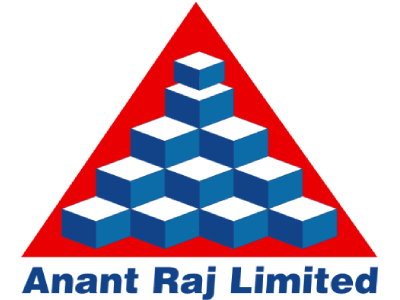Direct Tax
Types of Direct Taxes: Direct taxes can take various forms, including:
a. Income Tax: The most common form of direct tax, levied on the income earned by individuals, businesses, and other entities.
b. Corporate Tax: Imposed on the profits earned by companies and corporations.
c. Capital Gains Tax: Applicable when individuals or businesses sell assets such as property, stocks, or investments and make a profit.
d. Wealth Tax: Levied on the net wealth or assets owned by individuals or businesses.
e. Inheritance Tax: Imposed on the value of inherited property or assets.
f. Gift Tax: Applicable when a person or entity receives a gift or donation of a significant value.
g. Property Tax: Levied on the value of real estate or property owned by individuals or businesses.
Free Call Back by our Expert
Here are some key characteristics of Direct Tax
- Overview
- Benefit
Direct taxes are a type of tax imposed directly on individuals and entities by the government. These taxes are levied on the income, wealth, and assets of individuals, as well as on profits earned by businesses. Direct taxes are different from indirect taxes, which are imposed on goods and services.
Income Tax: Income tax is one of the most common types of direct taxes. It is imposed on the income earned by individuals, corporations, and other entities. The tax rates typically vary based on the level of income, with higher income individuals and corporations generally subject to higher tax rates. Income tax is usually progressive, meaning that the tax rate increases as income rises.
Corporate Tax: Corporate tax is a direct tax levied on the profits earned by corporations and businesses. The tax rates may vary depending on the jurisdiction and the size of the company. Corporate tax is usually calculated based on the net profit, which is the company’s total revenue minus allowable deductions and exemptions.
Direct taxes offer several benefits to governments and societies. Here are some key advantages of direct taxes:
Revenue Generation: Direct taxes are a significant source of revenue for governments. They contribute to funding public services, such as education, healthcare, infrastructure development, defense, and social welfare programs. By levying taxes directly on individuals and entities, governments can generate a stable and predictable stream of income to support public expenditures.
Progressivity and Redistribution: Direct taxes can be designed to follow a progressive tax structure, meaning that individuals with higher incomes or greater wealth are subject to higher tax rates. This progressive approach helps promote income and wealth redistribution, reducing economic inequalities within a society. By taxing the affluent more heavily, direct taxes can contribute to a fairer distribution of resources and opportunities.
Economic Stabilization: Direct taxes can be used as a tool for economic stabilization. During periods of economic growth, governments can increase tax rates to capture a larger share of income and profits, which can be used to fund public investments or reduce budget deficits. Conversely, during economic downturns, tax rates can be lowered to stimulate consumer spending and business investment, aiding in economic recovery.
Behavioral Influence: Direct taxes can be employed to influence individual and corporate behavior. For example, taxes on harmful or undesirable activities, such as tobacco, alcohol, or carbon emissions, can help discourage such behaviors and promote public health or environmental sustainability. Tax incentives can also be implemented to encourage socially beneficial activities, such as investments in research and development or renewable energy.
Simplification and Transparency: Direct taxes, particularly income tax, can be relatively straightforward to administer and understand. With proper tax systems and regulations in place, taxpayers can accurately determine their tax liabilities, file returns, and comply with tax laws. Transparent tax systems foster public trust and confidence in the fairness and efficiency of the tax system.
Fiscal Autonomy: Direct taxes provide governments with greater fiscal autonomy and flexibility. Unlike indirect taxes, which may be shared with producers or suppliers, direct taxes allow governments to directly control and allocate revenue according to their priorities. This enables governments to respond to the specific needs and challenges of their societies, tailor public expenditures, and implement targeted policies.
It’s important to note that the benefits of direct taxes can be influenced by factors such as tax administration efficiency, taxpayer compliance, and the overall design and implementation of the tax system. Effective governance and periodic evaluation of tax policies are crucial to maximizing the advantages of direct taxes while minimizing any potential drawbacks.
Company Registration in India
To register a company in India, you need to follow the guidelines and procedures set by the Ministry of Corporate Affairs (MCA). The registration process typically involves several steps, which I’ll outline below:
Obtain Digital Signature Certificate (DSC): The first step is to obtain a digital signature certificate for the proposed directors of the company. The DSC is required for online filing during the registration process.
Obtain Director Identification Number (DIN): Each director of the company must have a DIN. You can apply for DIN online through the MCA portal by submitting the necessary documents and fees.
Name Reservation: Once you have obtained the DSC and DIN, you need to choose a unique name for your company and submit it to the MCA for approval. You can do this through the RUN (Reserve Unique Name) service available on the MCA portal. The name should comply with the naming guidelines and should not be similar to any existing company or trademark.
Prepare Incorporation Documents: After the name is approved, you need to prepare the incorporation documents, including the Memorandum of Association (MoA) and Articles of Association (AoA). These documents define the company’s objectives, rules, and regulations.
Filing of Incorporation Documents: Once the incorporation documents are ready, you can file them online with the MCA. The documents include Form SPICe (Simplified Proforma for Incorporating Company Electronically) along with the required attachments.
PAN and TAN Application: Along with the incorporation documents, you need to apply for a Permanent Account Number (PAN) and Tax Deduction and Collection Account Number (TAN) from the Income Tax Department.
Certificate of Incorporation: After reviewing the documents, if everything is in order, the Registrar of Companies will issue a Certificate of Incorporation. This document signifies the formal registration of your company.
Apply for Goods and Services Tax (GST) Registration: Depending on the nature of your business, you may need to register for GST, which is a tax levied on the supply of goods and services. You can apply for GST registration online through the GST portal.
It’s important to note that the registration process and requirements may vary depending on the type of company you want to register (e.g., private limited, public limited, one person company, etc.) and the specific circumstances of your business. It’s advisable to consult with a professional, such as a company secretary or a chartered accountant, to ensure compliance with all legal requirements and to guide you through the registration process.
Customer Reviews
VITIKA MAKAJI
Trademark Objection
- Verified Customer
04 May 2023
Good follow up.
SWETHA D
DIN eKYC Filing
- Verified Customer
12 May 2023
Goood
HARIHARAVIJITHA M
Trademark Registration
- Verified Customer
04 May 2023
nice
VITIKA MAKAJI
Trademark Objection
- Verified Customer
04 May 2023
Good follow up.
Our Clients







